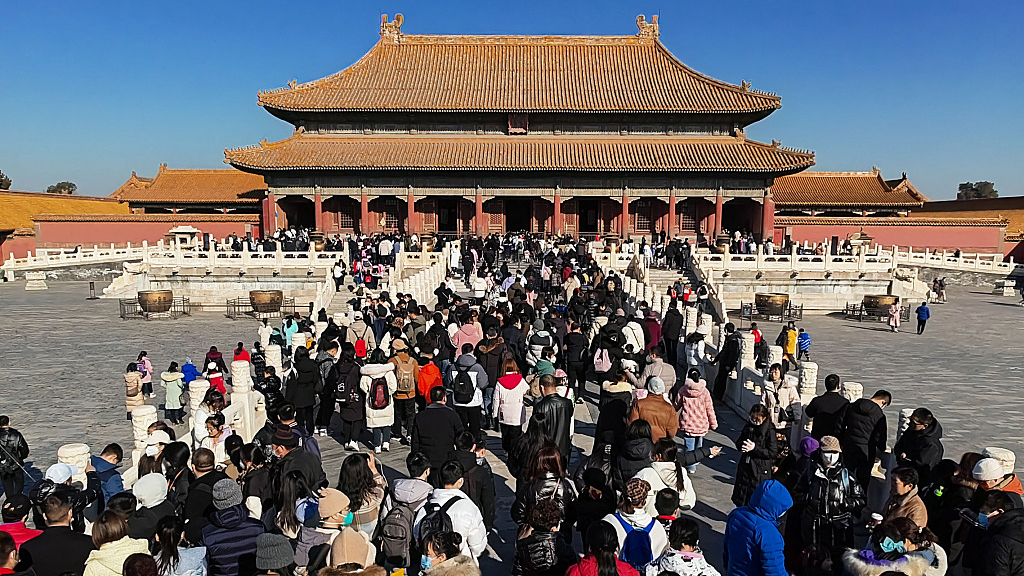
Tourists visit the Palace Museum, or the Forbidden City, in Beijing, capital of China, January 31, 2023. /CFP
Tourists visit the Palace Museum, or the Forbidden City, in Beijing, capital of China, January 31, 2023. /CFP
Chinese capital Beijing will carry out a survey to measure COVID-19 antibody levels in its population to help assess the current situation and better prepare for future infections, said a local health official on Tuesday.
Wang Quanyi, deputy director of the Beijing Center for Disease Prevention and Control, said during an interview with Beijing News that the city plans to conduct serological tests, which target antibodies triggered by a previous infection, on about 5,000 residents from February to March.
The survey participants will also fill out a questionnaire on their nucleic acid and antibody testing results, vaccination status and the course of their infection and treatment.
Survey findings will be used to optimize the allocation of anti-virus resources as well as future policies, Wang added.
Wang said Beijing has passed the peak of the latest COVID-19 wave and is nearing its end, and the current dominant strains are BF.7 and BA.5.2.
With immunity gained from recent infections, the possibility of seeing another wave in at least three months is very low, Wang said, adding that the increase in return trips to Beijing during the Spring Festival travel rush will not cause trouble as the nationwide epidemic is also in decline.
While Beijing has established temporary immunity among its population and is unlikely to experience a fresh wave in the short term, Wang suggested people aged 80 and above get vaccinated soon.
Read More:
COVID-19 infection rate during Spring Festival low: China's NHC
COVID-19 cases in China substantially dropped in Jan.: Official data
China has passed peak period for number of severe COVID patients: official